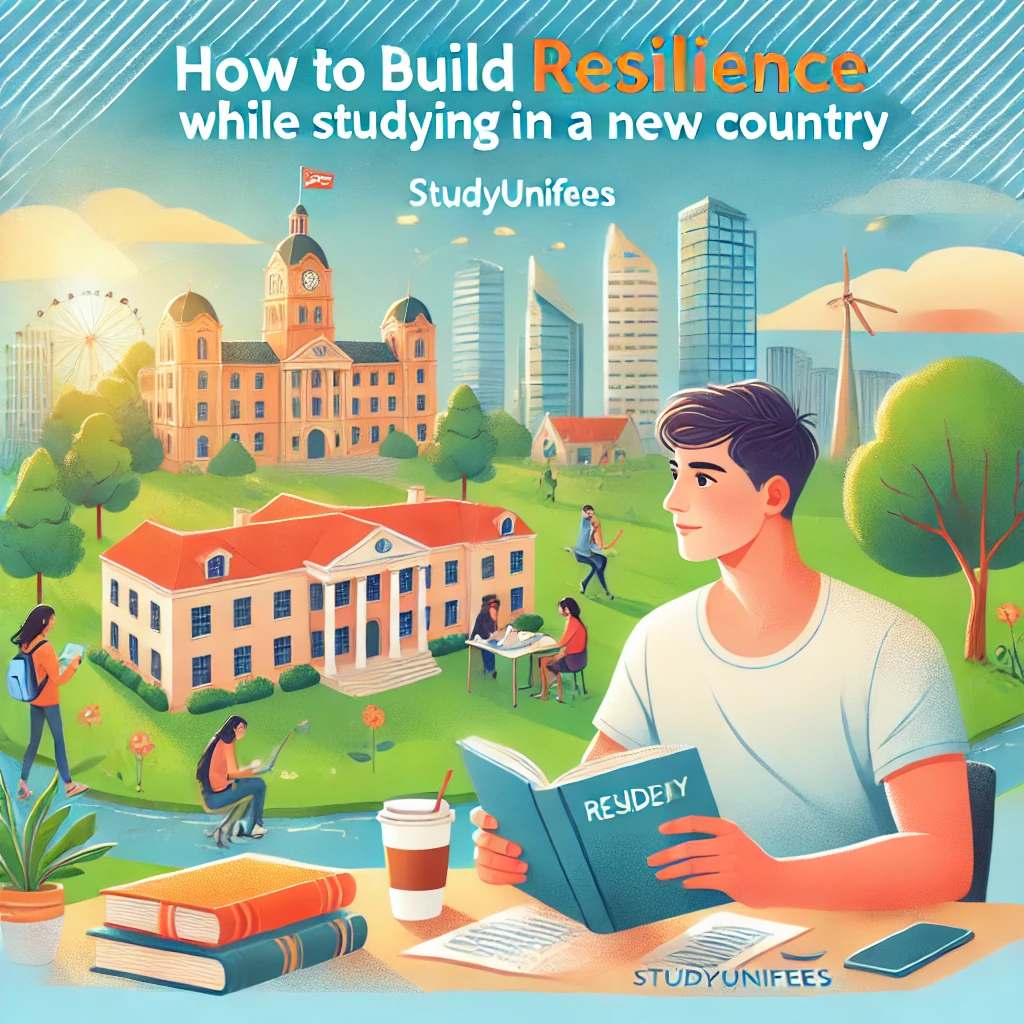How to Build Resilience While Studying in a New Country

Studying abroad is an exciting journey filled with new experiences, cultural immersion, and personal growth. However, it also presents its fair share of challenges, from adjusting to cultural differences to navigating academic pressures in a new environment. Building resilience, or the ability to adapt and bounce back from difficult situations, can make all the difference in transforming these challenges into opportunities. Here’s how you can foster resilience while studying in a foreign country, setting yourself up for both academic success and personal fulfillment.
One of the first steps in building resilience is to embrace the cultural differences you encounter with an open mind. Moving to a new country means adapting to new customs, languages, and lifestyles, which can feel overwhelming at first. However, rather than viewing these differences as obstacles, approach them with curiosity. Attend local events, join student clubs, and explore local cuisine to get a taste of the new culture. Each small step towards understanding the local way of life will help you feel more integrated and comfortable in your surroundings.
Creating a support network is also crucial. As you navigate a new environment, having people to rely on for emotional support can significantly impact your ability to stay resilient. Try connecting with other international students who understand the struggles of adjusting to a new country, as well as local students who can help you understand the culture better. Additionally, stay in touch with family and friends back home, as they can provide comfort and a sense of familiarity that helps keep homesickness at bay. Building a balanced support system gives you people to turn to for encouragement, advice, or simply a listening ear during tough times.
Setting realistic goals and expectations can help manage the pressures that come with living and studying in a foreign country. Adapting takes time, and you may not excel in every area immediately. Instead of expecting instant mastery in academics, social life, or language, break down your goals into smaller, achievable tasks. For instance, if you’re working on language skills, try learning a few useful phrases each day rather than trying to become fluent overnight. Setting small, manageable goals helps avoid burnout and allows you to celebrate small wins, reinforcing your confidence along the way.
Taking care of yourself is essential for building resilience, so prioritize your physical and mental well-being. Good nutrition, regular exercise, and adequate sleep can go a long way in helping you stay focused and energized. Even small self-care routines, like taking walks, meditating, or exploring your new city, can recharge you and improve your overall mood. By making self-care a priority, you build the stamina needed to handle both daily tasks and unexpected challenges with a clearer mind and a positive outlook.
Stress is a natural part of studying abroad, but learning to manage it effectively can build resilience. When stress levels rise due to academic deadlines or adapting to a new lifestyle, practicing mindfulness can be helpful. Techniques like deep breathing, meditation, and journaling allow you to process your feelings and focus on the present moment. By creating a mindful routine, you can better handle stress and approach challenges with a sense of calm and control.
In a new country, you’re bound to face setbacks, but viewing failures as learning opportunities can be transformative. It’s natural to feel discouraged by academic difficulties or communication barriers, yet each challenge brings valuable lessons. Instead of dwelling on mistakes, ask yourself what you can learn from them. For instance, if you struggled with an assignment, consider what steps you could take to improve next time. Shifting your perspective on failure makes it easier to persevere, and over time, it builds a resilient mindset that allows you to thrive.
Maintaining a connection with loved ones back home is another important factor in building resilience. Homesickness is common among international students, but staying in touch with family and friends can provide a comforting reminder of your roots and support system. Schedule regular video calls or send updates to keep them involved in your life abroad. Balancing connections from home with new friendships in your host country can create a strong emotional foundation that supports your resilience.
Finally, don’t hesitate to seek help when you need it. Many universities offer counseling services, support groups, and academic advisors who specialize in assisting international students. If you’re feeling overwhelmed, reaching out for professional help is not a sign of weakness—it’s a proactive way to take care of yourself. Seeking guidance or talking to a counselor can provide coping strategies and make you feel less alone as you navigate this new chapter.
Building resilience while studying in a new country is a journey, one that requires self-compassion, openness, and patience. As you adapt to this exciting but challenging experience, remember to celebrate each milestone, from mastering a new language skill to forming friendships that make you feel at home. By focusing on resilience, you’ll not only overcome obstacles but also grow into a more confident, capable, and adaptable individual, ready to take on the world.
